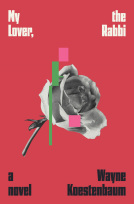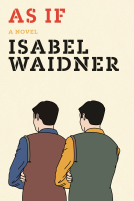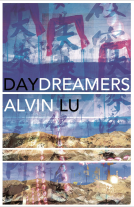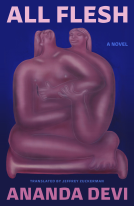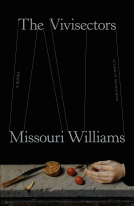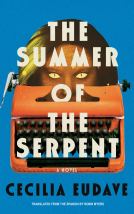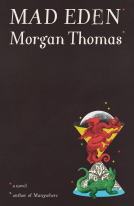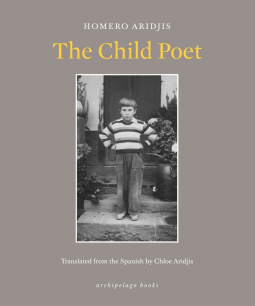
The Child Poet
by Homero Aridjis
This title was previously available on NetGalley and is now archived.
Send NetGalley books directly to your Kindle or Kindle app
1
To read on a Kindle or Kindle app, please add kindle@netgalley.com as an approved email address to receive files in your Amazon account. Click here for step-by-step instructions.
2
Also find your Kindle email address within your Amazon account, and enter it here.
Pub Date Feb 23 2016 | Archive Date Jan 18 2016
Archipelago Books | Archipelago
Description
Homero Aridjis has always said that he was born twice. The first time was to his mother in April 1940 and the second time was as a poet, in January 1951. His life was distinctly cleaved in two by an accident. Before that fateful Saturday, he was carefree and confident, the youngest of five brothers growing up in the small Mexican village of Contepec, Michoacán. After the accident—in which he nearly died on the operating table after shooting himself with a shotgun his brothers had left propped against the bedroom wall—he became a shy, introspective child who spent afternoons reading Homer and writing poems and stories at the dining room table instead of playing soccer with his classmates. After the accident, his early childhood became like a locked garden. But in 1971, when his wife became pregnant with their first daughter, the memories found a way out. Visions from this elusive period started coming back to him in astonishingly vivid dreams, giving shape to what would become The Child Poet.
Aridjis is joyously imaginative. The Child Poet has urgency but still takes its time, celebrating images and feelings and the strangeness of childhood. Readers will love being in the world he has created. Aridjis paints the pueblo of Cotepec—the landscape, the campesinos, the Church, the legacy of the Mexican Revolution—through the eyes of a sensitive child.
Advance Praise
"[Aridjis'] poems leave a stunning record of images caught between the traumas and the paradises of the past." - Cold Mountain Review
"In some ways not even the poetry of Octavio Paz can compare with the production of Aridjis." - The Texas Observer
"In the poetry of Homero Aridjis there is the gaze, the pulse of the poet, the discontinuous time of practical and rational life and the continuity of desire and death: there is the poet's primal truth." - Octavio Paz
"He is a visionary poet of lyrical bliss, crystalline concentrations and infinite spaces... I can think of no poet of Aridjis' generation in the Western Hemisphere who is as much at ease in the blue spaces of illumination - the illumination of transcending love. These are words for a new Magic Flute." - Kenneth Rexroth (Introduction to "Blue Spaces")
"A great flame passes through the words, the poetry of Homero Aridjis, who sets reality alight in images that at once illuminate and consume it, making life a sister of dream. Homero is a great poet; our century has great need of him." - Yves Bonnefoy
"The poetry of Homero Aridjis is a symbol of love. His work is very beautiful, above all, his style is very original, very novel." - Juan Rulfo
"Through the two currents of his fiction, with historical background and futuristic themes, Aridjis has brought and is bringing a contribution to Hispano-American narrative which places him among the greatest authors of the 20th Century." - Giuseppe Bellini, on The Lord of the Last Days: Visions of the Year 1000
"A book of remarkable imaginative power, a looming shadow of a book, a pit and a pendulum all in one, measuring and burying, remorselessly bizarre. It is impossible not to respect the eloquence which Aridjis brings to lives facing the threat of sudden death at every point and the subtlety with which he insists that the death of the spirit is more terrible than anything that may befall the body." - The Guardian, UK on 1492: The Life and Times of Juan Cabezon of Castille
"Thus the poet (the 'child poet' who alone sees and perceives everything, even terror and ecstasy) is the one who opens the way. He acts on impulses, led by intuition rather than reason --- for even reason must be abandoned at the very last instant, as Islamic mystics teach, to make way for ecstasy. He is the first to perceive the fate of the world. To attain knowledge, one must :
Burn the boats/ that the old shadows / will not follow us / to the new land" -- J. M. G. Le Clézio
Available Editions
| EDITION | Other Format |
| ISBN | 9780914671404 |
| PRICE | $16.00 (USD) |
Average rating from 3 members
Featured Reviews
 Andrija F, Educator
Andrija F, Educator
*The Child Poet* by Homero Aridjis is a novel that explores the world of a young boy who is a gifted poet in Mexico. The story centers on his experiences growing up and his interactions with the people and environment around him. Through the lens of the child’s poetic imagination, Aridjis delves into themes of innocence, creativity, and the complexities of coming of age. The novel examines how the child’s unique perspective on the world influences his understanding of himself and his surroundings, offering insights into the transformative power of art and the struggles of maintaining one’s artistic vision amidst external pressures. Aridjis’s writing is noted for its lyrical quality and its ability to capture the essence of a young poet’s journey.
Readers who liked this book also liked:
Cecilia Eudave
General Fiction (Adult), Literary Fiction, Multicultural Interest
